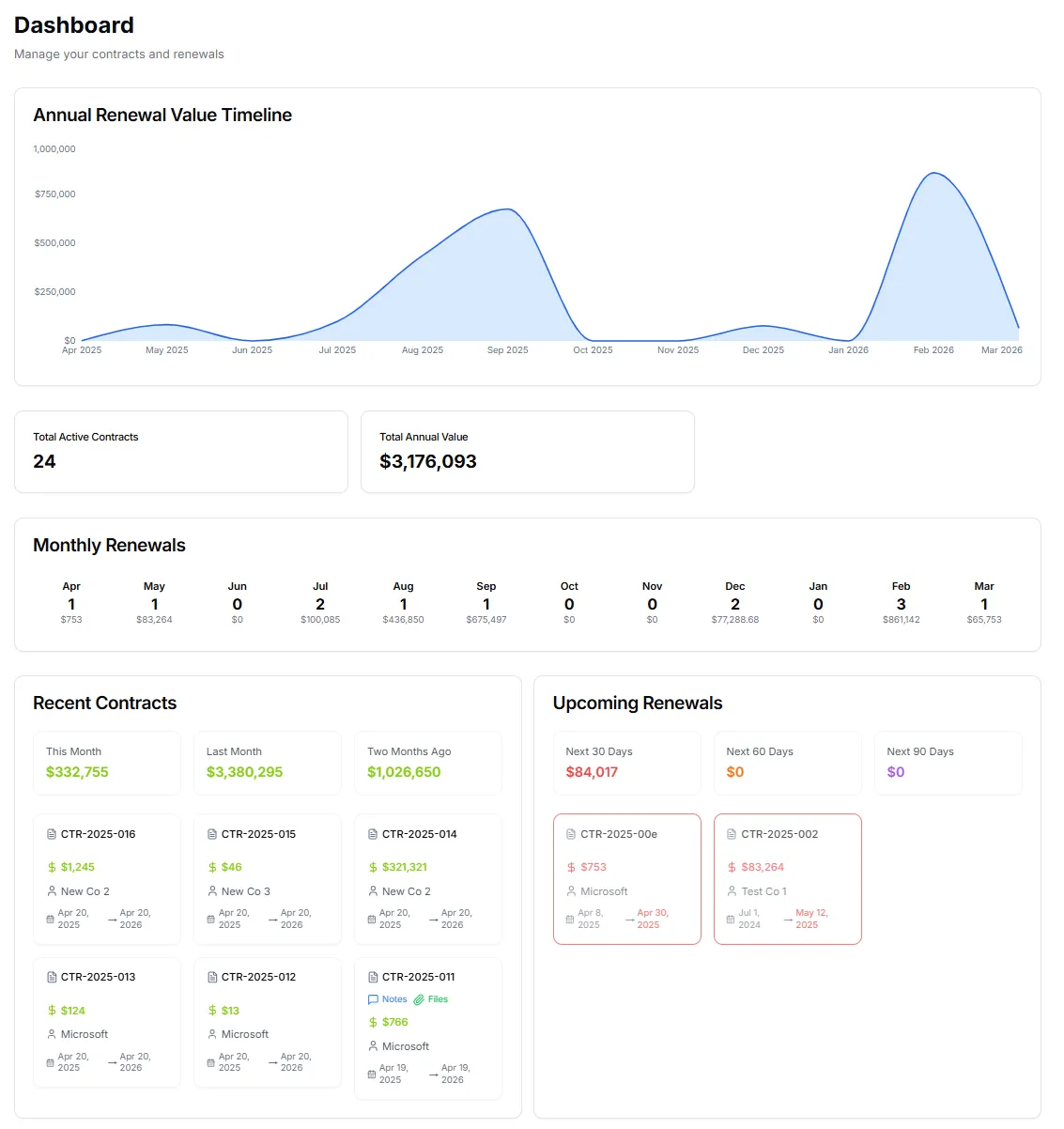
5 erreurs de contrat et de vente à éviter : Guide de Contrax (2025)
Faites-vous ces 5 erreurs de contrat et de vente ?
Soyons honnêtes, la gestion des contrats et les ventes sont l’épine dorsale de toute entreprise florissante. Mais même les équipes les plus expérimentées peuvent trébucher sur les mêmes erreurs douloureuses, souvent sans même s’en rendre compte. Ces faux pas ne causent pas seulement des maux de tête occasionnels ; Ils peuvent tranquillement freiner votre croissance, éroder la confiance et vous coûter de l’argent réel. Alors, commettez-vous l’une de ces cinq erreurs coûteuses de gestion des contrats et de vente ? Regardons cela de plus près.
1. S’appuyer sur des feuilles de calcul obsolètes
Si votre équipe suit toujours les contrats des clients sur des feuilles de calcul ou, pire, fouille dans les fils de discussion des e-mails pour trouver les dernières versions, vous n’êtes pas seul. Mais cette approche « à l’ancienne » ouvre la porte à des erreurs, des renouvellements manqués et des conditions incohérentes.
Prenons, par exemple, une entreprise de logiciels de taille moyenne avec laquelle j’ai travaillé l’année dernière. Leur équipe de vente a perdu la trace des dates d’expiration des contrats, ce qui a entraîné une interruption soudaine des services pour plusieurs clients de longue date. Les retombées ? Des appels frénétiques, des remises précipitées pour apaiser les clients en colère et une atteinte à leur réputation. Une fois qu’ils sont passés à un système automatisé de gestion des contrats, ils ont constaté une baisse marquée des renouvellements manqués et ont même réussi à repérer des opportunités de vente incitative qu’ils avaient auparavant négligées.
Conseil pratique : Investissez dans une plateforme de gestion des contrats dédiée qui offre des rappels, un contrôle de version et une récupération facile des documents. De cette façon, votre équipe de vente peut se concentrer sur l’établissement de relations, et non sur les problèmes administratifs.
2. Négliger la propriété claire du contrat
À qui appartient réellement chaque contrat ? Si votre réponse est « l’équipe de vente, je suppose », vous avez peut-être un problème. Sans responsabilité claire, les contrats peuvent passer à travers les mailles du filet, en particulier lorsque le personnel quitte le personnel ou que les rôles changent.
Un cas concret : une société d’ingénierie avait plusieurs contrats clés liés à un seul directeur des ventes. Lorsqu’elle est partie, son remplaçant ne savait pas où trouver les détails ni quelles obligations étaient en suspens. La confusion a retardé le lancement du projet et a laissé filer quelques clients lucratifs.
Conseil pratique : Attribuez explicitement la propriété du contrat, idéalement à une personne ou à un rôle spécifique. Assurez-vous que tous les détails du contrat sont accessibles dans un système partagé, et non enfouis dans des dossiers personnels ou des boîtes de réception.
3. Ne pas normaliser les termes et les modèles
Chaque fois que votre équipe rédige un nouveau contrat à partir de zéro, vous vous exposez à des incohérences et à des maux de tête juridiques potentiels. Les conditions non standard peuvent entraîner des litiges, voire des violations involontaires.
J’ai récemment parlé avec une agence de marketing qui avait trois versions de son contrat client qui circulaient, chacune avec des conditions de paiement légèrement différentes. Le résultat ? Un client payait en retard chaque mois, convaincu qu’il disposait de 30 jours supplémentaires. Résoudre la confusion a coûté à l’agence du temps et de la bonne volonté.
Conseil pratique : Élaborez des modèles clairs pour vos contrats les plus courants. Demandez à un service juridique de les examiner et assurez-vous que tout le monde utilise la dernière version. Cela permet de protéger votre entreprise et d’accélérer les négociations.
4. Négliger les clauses de performance et les indicateurs clés de performance
Il est facile de se concentrer sur les chiffres principaux (valeur totale du contrat, frais initiaux) et d’oublier les détails qui contribuent au succès. En l’absence de mesures de performance spécifiques inscrites dans les contrats, vous aurez du mal à tenir l’une ou l’autre des parties responsable si les choses tournent mal.
Imaginez un fournisseur de services gérés qui n’a pas inclus d’accords de niveau de service (SLA) dans la moitié de ses contrats clients. Lorsque les délais de réponse ont diminué, les clients avaient peu de recours et le fournisseur avait de la difficulté à justifier sa propre performance. En revanche, les contrats avec des KPI clairs ont permis de meilleures conversations et même des discussions de vente incitative.
Conseil pratique : Assurez-vous que chaque contrat inclut des résultats mesurables, qu’il s’agisse de délais de livraison, de temps de réponse ou d’indicateurs de qualité. Examinez-les régulièrement avec vos clients pour que tout le monde reste sur la bonne voie.
5. Ignorer la gestion des contrats après-vente
Trop d’équipes considèrent la signature d’un contrat comme la ligne d’arrivée plutôt que comme le point de départ de la relation. Négliger la gestion continue signifie que vous risquez de manquer les dates de renouvellement, les opportunités de vente incitative et les risques potentiels.
Par exemple, une entreprise SaaS que je connais n’a pas eu l’occasion de renouveler un client de trois ans simplement parce que personne n’a suivi la date de fin du contrat. Le résultat ? Le client a discrètement déménagé chez un concurrent, et l’équipe de vente ne s’en est rendu compte que quelques semaines plus tard.
Conseil pratique : Traitez la gestion des contrats comme un processus continu. Définissez des rappels pour les dates clés, planifiez des contrôles réguliers et maintenez les lignes de communication ouvertes avec les clients tout au long du cycle de vie du contrat.
Conclusion
Les erreurs de gestion des contrats et de vente peuvent se glisser inaperçues, mais leur impact est tout sauf subtil. En abandonnant les feuilles de calcul, en clarifiant la propriété, en normalisant les modèles, y compris des indicateurs clés de performance clairs, et en gérant activement les contrats après la vente, vous pouvez protéger vos plans de croissance et renforcer vos relations avec vos clients. Examinez attentivement vos propres processus, faites-vous l’une de ces erreurs ? Quelques changements simples pourraient faire toute la différence. Essayez Contrax





